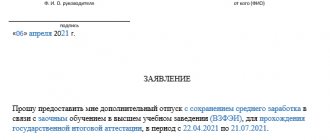When was the law published?
Already on July 3, 2021, a law amending Article 72 of the Criminal Code of the Russian Federation was posted on the official Internet portal www.pravo.gov.ru, which was adopted by the State Duma on June 21, 2018, and approved by the Federation Council on June 27, 2018.
According to this law, the following changes are introduced to Article 72:
- the time during which the accused is in custody before the court considers the case and makes a decision will now be counted towards the period of detention in a military unit with a ratio of 1:1.5, that is, one day to one and a half days;
- if we are talking about restriction of freedom, forced labor or arrest, then the ratio will be 1:2, that is, one day in two days;
- if it comes to correctional work, then the ratio is: 1:3.
What does the legislation say?
The provision “a day and a half in a pre-trial detention center” was officially adopted on 07/04/18 in the third reading. This issue is spelled out in detail and is regulated by bill No. 73983-5.
This law directly relates to Art. 72 of the modern Criminal Code of the Russian Federation. It regulates the calculation of the time allotted for keeping a violator in a place of detention until he awaits a court decision.
Since July of this year, a new procedure has been established for calculating the length of stay in a pre-trial detention center. At the moment, not 1:1 is used, but, depending on the situation, ratios of 1.5:1 and 2:1. According to the legal update of Art. 72, the period spent in custody in a detention center is calculated as follows:
- The time spent awaiting a court verdict will be determined at a ratio of 1:1.5.
- The period of restriction of freedom of the offender, forced working hours or arrest followed by release – 1:2.
- Time spent doing correctional work ordered by the court 1:3.
After the adoption of these amendments, the time spent by the convicted person in an investigative institution is necessarily added to the total term of imprisonment. Now the full day that a person spent in a pre-trial detention center is equal to:
- One day in a maximum security penal colony.
- One and a half days in a regular educational colony.
- Two days in a colony-settlement with relaxed conditions.
In what cases is a year and a half in a pre-trial detention center not taken into account?
The law clearly states in which cases a year and a half is not taken into account, but a 1:1 ratio is taken:
- if a person has been convicted of a serious or especially serious crime;
- if the crime committed by the person is related to terrorist activities;
- if the convicted person has repeatedly committed crimes, that is, he is a repeat offender;
- if a person was convicted of a crime under Art. 228 for drug trafficking;
- if the perpetrator was convicted of theft and/or extortion of psychotropic and narcotic substances;
- if a charge of treason has been brought;
- if the accused was convicted of espionage - collecting, storing and stealing information for transfer to foreign states;
- if a charge was brought for committing an act of international terrorism - the person committed arson, explosion or other actions that endangered the life and health of people.
People who have been charged by a court with committing grave and especially grave crimes are not subject to the new amendments.
They will serve their sentences according to the old principle; they are not subject to the new law, which came into force on July 14, 2018.
Does the innovation apply to persons under house arrest?
Yes, it does . According to the innovations, a person in this case can count on a reduction in terms of imprisonment at the rate of: 2 days of house arrest for 1 day of detention or for 1 day of imprisonment.
Within what period must the provisions of the new law be implemented?
Article 2 of the amendments to the law states that the provisions of the new law should come into force:
- within 3 months from the date of signing the law in relation to those criminals who are in an educational colony and in a colony-settlement;
- within six months from the date of signing the law in relation to those criminals who are serving sentences in high-security colonies, as well as persons who have been sentenced by the court in the form of compulsory, corrective and forced labor. Also, the provisions come into force within 6 months for military personnel who are serving a sentence in a disciplinary military unit or in limited military service.
In 2021, amendments to Article 72 of the Criminal Code of the Russian Federation have already entered into force . According to the latest data, the law has already been adopted and will come into force on July 14, 2018.
According to the new law, 1 day in a pre-trial detention center = 1.5 days in a general regime colony, as well as an educational colony.
How will the time served be recalculated?
The recalculation of the term will be carried out in court based on the defendant’s application.
But there are exceptions
After the first reading, a list of articles of the Criminal Code was added to the bill, for which the term, regardless of the regime of the colony, will be taken into account at a one-to-one ratio: terrorism (205–205.5 of the Criminal Code), hostage-taking (parts 3 and 4 of Article 206 of the Criminal Code), aircraft hijacking , ship or train (Part 4 of Article 211 of the Criminal Code), treason (275 of the Criminal Code), espionage (276 of the Criminal Code), international terrorism (361 of the Criminal Code). In addition, under articles on encroachment on the life of an official or public figure (277 Criminal Code), seizure of power (278 Criminal Code), armed rebellion (279 Criminal Code) and attack on persons under international protection (360 Criminal Code), the “one to one” rule will apply if these crimes are “related to the implementation of terrorist activities.”
There will also be no conversion of sentences for those convicted under articles on possession of drugs on a large and especially large scale (parts 2 and 3 of Article 228), production and sale (228.1 of the Criminal Code) and theft of drugs (229 of the Criminal Code).
In addition, a day in a pre-trial detention center will be counted as one day of the assigned sentence for “particularly dangerous recidivism of crimes” and for convicts whose death penalty was commuted to life or 25 years in prison.
If, after being sent to a colony, the convict was placed in a punishment cell or disciplinary cell (or a cell-type facility), then the days of such punishment will also be recalculated “one to one.” Based on the text of the bill, this means an increase in the total term of punishment if a punishment is applied to the convicted person (days in the pre-trial detention center will be “subtracted” from the term counted after the pre-trial detention center). How this measure will be applied in practice was not explained during the discussion of the document in the State Duma.
What does the new law provide? Last news
Innovations regarding serving time in a pre-trial detention center and recalculating days of punishment have been considered by deputies for more than 10 years. Fortunately, the President has already signed a new bill into law in 2021.
But why did the debate last for so long and why did legislators take so long to achieve amendments:
- Experts argued that the conditions in the pre-trial detention center are bad, even worse than in correctional institutions. In their opinion, people who are in a pre-trial detention center for an indefinite period of time are treated incorrectly, inhumanely, without taking into account the length of their stay in the pre-trial detention center in the general correctional period. The fact is that in pre-trial detention centers prisoners sit as if in a cage. They are prohibited from doing anything and are only entitled to a 1-hour walk per day.
- Some experts argue that investigations in numerous criminal cases related to the economic sphere are deliberately delayed, and investigators deliberately keep the accused in pre-trial detention for a maximum period of 1 year. With new amendments to the bill, investigators will finally stop delaying the process.
The amendments entered into force under Art. 72 of the Criminal Code of the Russian Federation are aimed at mitigating criminal legislation, since they imply a period of serving a sentence of 1 day in a pre-trial detention center = 1.5 days in a general regime colony, two days if we are talking about house arrest.
The previously established “day by day” rule no longer applies, but the innovations do not apply to those criminals who are serving sentences for serious and especially serious crimes.
When is the new calculation not used?
Modern legislation states when “a day and a half” should not be taken into account. There are several situations when the standard, previously used 1:1 ratio is taken. This innovation is not used in the following situations:
- A person has been convicted by a court of a serious criminal act.
- The criminal is involved in a case that is directly or indirectly related to terrorism.
- The offender has committed crimes more than once, that is, from the point of view of the Criminal Code, he is a dangerous repeat offender.
- The offender received a sentence under Art. 228. Here we are talking about illegal drug trafficking.
- A violator of the law comes under investigation for extortion, theft of drugs or psychotropic substances.
- The man was charged with treason against the state.
- The offender was charged with espionage activities. The collection, storage and theft of information, as well as its subsequent transfer to employees of government agencies in other countries, are punishable.
Criminals who have been charged under articles of grave and especially grave violations of the law are not subject to the updated preferential amendments to Art. 72.
How is the term calculated?
The full list of these measures applied to a person against whom investigative actions are being conducted is established by Chapter 13 of the Code of Criminal Procedure of the Russian Federation.
Among them are:
Free legal consultation
+8 800 100-61-94
- recognizance not to leave;
- guarantee from a third party;
- special control and supervision by the command of a military unit;
- special control and surveillance of a person under the age of majority;
- House arrest;
- pledge;
- detention in a pre-trial detention center.
The choice of a specific measure against a particular person is made by a law enforcement officer depending on many circumstances.
So, the following nuances should be taken into account:
- the severity of the criminal act of which the citizen is suspected;
- the possibility of a person to escape from justice;
- the ability of a citizen to influence the course of the investigation (for example, to put pressure on witnesses).
Also, the choice of measure is influenced by some other circumstances, such as: marital status, health, type of activity of the suspect, etc.
Attention! During the investigation, the chosen preventive measure may be replaced by another, either more or less strict.
The most severe restrictive measure among all those established by the Code of Criminal Procedure of the Russian Federation is placement in a pre-trial detention center.
It should be noted that a decision on such a significant defeat in the rights of a citizen whose guilt has not yet been established can only be made by a judicial authority. The person conducting the investigation can only submit a corresponding petition to the court.
When deciding this issue, the judge is guided by the norms of the Code of Criminal Procedure of the Russian Federation . According to this legal act, such a strict measure can only be taken against a citizen who is suspected of an act punishable by at least 3 years in prison. However, the law allows for the possibility of detaining persons suspected of crimes of mild severity under certain conditions.
The corresponding court decision can be appealed by the person, as well as by his representative in the appellate instance.
Separately, the law identifies the conditions under which the detention of minors is possible. The court may make a similar decision if the latter commits a crime of a particularly grave nature.
Persons who are placed in a pre-trial detention center, after the conviction has acquired legal force, are, as a rule, sent to a colony of one type or another. However, Russian human rights activists have noted for many years that conditions in detention centers for pretrial detainees are sometimes significantly worse than in the colonies themselves. At the same time, for a long time, when taking into account the term of punishment, one day in a pre-trial detention center was equated to one day in a correctional institution.
In 2021, as part of targeted legislative work aimed at humanizing the criminal legislation and penitentiary system of the Russian Federation, bill No. 73983-5 was introduced into the relevant legal documents, which concerns the rules for recording time spent during the investigation.
Thus, it was established that, due to the special conditions of detention in a pre-trial detention center, the time of stay in institutions of this type should be calculated according to special rules. For persons who are permanently in colony settlements, 1 day as a person under investigation with isolation is equivalent to two days of being in a penal colony.
If the convicted person is sentenced to punishment in a general regime colony, then the corresponding period will be calculated as 1 day per day and a half. As for those for whom the conditions for serving their sentences are the most stringent (high and especially high security colonies), absolutely nothing has changed for them. The ratio of time spent is 1:1.
In cases where a person is transferred from one type of correctional institution to a correctional facility of another type, the terms are recalculated. When a convicted person is transferred to more lenient conditions of serving, for example, from a general regime colony to a settlement colony, part of the term spent in a pre-trial detention center will be calculated as one day for one and a half, and part - as one day for two in a pre-trial detention center. A similar rule applies when transferring a convicted person to an institution with more strict conditions of detention.
The concept of the current legislation of the Russian Federation assumes that norms that somehow improve the situation of citizens have retroactive effect. In this regard, starting from 2021, persons who were previously convicted can also apply for a reduction in their sentences on the grounds stated above.
It is also useful to read: Calls and transfers for prisoners with the Zonatelecom operator
Minimum and maximum period value
The law does not specify the minimum period of time spent in a pre-trial detention center; everything is determined by the individuality of the situation and the interests of the facility. That is, if the suspect has no hidden facts, and the investigation, in turn, has no grounds for keeping the prisoner in a pre-trial detention center, release can occur within 24 hours. The maximum term is also not specified; it is determined in accordance with the type of crime and the nuances of the investigation.
However, the maximum period has some features:
- the standard indicator should not be more than two months;
- if the investigation does not have enough time, it can be extended to six months;
- the previous paragraph can only apply if there is a risk that the suspect will be able to hide traces of his actions after leaving the pre-trial detention center;
- in case of complex circumstances of the case, the period may be extended to one and a half years.
Formally, there is a ban on longer stays in pre-trial detention centers. However, in some situations it can be bypassed.
Basic questions about the innovation
People who are somehow affected by such an amendment have certain questions. Here are a few of the most popular ones.
Does the innovation apply to those under house arrest?
A convicted person under such arrest has the right to a reduction in the period of imprisonment. The following calculation operations apply here:
- Two days of arrest within the walls of the house - 1 day of the usual presence of the criminal in custody.
- Two days at home under arrest is a day of complete deprivation of a person’s freedom of movement.
How long will the innovations be taken into account?
Legal amendments regarding detention in pre-trial detention centers must be implemented within a strictly established time frame:
- For 3 months from the date of signing the law, to those violators who are kept in a colony or in a settlement.
- Within six months from the date of official signing of the law, criminals who are in colonies with the strictest regime. The same rule applies to people who have been ordered by the court to undergo a sentence of corrective work hours.
- For 6 months - for those occupying military positions and those in a specialized disciplinary unit. This rule also applies to those who are simply limited in their previous military service.
For people who were previously in pre-trial detention centers at the time the law was adopted, recalculation will be carried out in court. The basis is a written statement of the convicted person.
Advantages of the adopted amendments
Innovations that directly relate to the length of time spent in isolation have been considered for about 10 years, but only recently a positive decision was made. The basis for revising the deadlines was the following factors:
- Poor living and psychological living conditions in the pre-trial detention center. They are much worse than ordinary correctional colonies. People here live as if in a cage; they are strictly forbidden to engage in any activity.
- Cases related to economic crimes are often deliberately delayed. Many investigators keep the perpetrators in pre-trial detention for the maximum permissible period, that is, one year.
Adopted innovations Art. 72 were aimed at significantly mitigating the punishment associated with staying in a pre-trial detention center. Thanks to the amendments, investigators will be prohibited from artificially delaying the investigation process.









